
Academic Staff | People | Further Education & Training Research Centre
People
Academic Staff
Dr Justin Rami
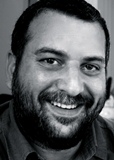 Justin Rami coordinates the activities of DCU's Further Education and Training Research centre (FETRC) and is a lecturer and researcher in the School of Policy & Practice in the Institute of Education DCU. Justin is the former Chair for the BSc in Education & Training (Flexible Learning mode). The Further, Adult and Continuing Education strand of this degree is the only Teaching Council recognised concurrent teaching degree in Ireland. Justin's expertise is focused predominantly in the F/VET area. He teaches the areas of Lifelong Learning, Further/Vocational Education & Training, Professional Development, Teaching & Learning Methodologies, Advanced Teaching Strategies, Curriculum Implementation & Assessment, Feedback, Microteaching, Teaching Preparation and Research Perspectives. At postgraduate level he contributes to the MSc in Education & Training (Leadership Strand) and supervises postgraduate students mainly in the area of Further, Adult and Continuing Education. Justin's current research expertise is in the area of Teaching and Learning with a specific focus on Assessment and Feedback. Since 2002 Justin has published articles, books and chapters relating to assessment, quality assurance, qualifications and accreditation in the further and vocational education field. Justin's current research activities include a longitudinal study examining the influence of the Bologna process on student learning, with particular focus on constructive alignment and assessment. Justin has 12 years experience working on European research projects focusing on Assessment, RPL, Qualification Frameworks, Accreditation and Transfer and Progression. Justin is a member of the European Educational Research Association's VETNET network. Other current and recent research work focuses on Curriculum Assessment and Implementation, Vocational Education and Training, Citizenship and Diversity. He has been awarded DCU's Teaching & Learning Award four times. Through the FETRC research centre Justin also conducts research for the OECD, the Arts Council of Ireland, NFTE, FETAC and the NQAI and conducted a peer reviewer for UNESCO's Institute for Life Long Learning and the Journal of Adult and Community Learning. Justin's background is in Development Education and Community Arts, and Further, Adult and Continuing Education and he has worked as an educator and researcher in Nigeria, Malawi, Mozambique, Uganda, Japan, Croatia, Bosnia, India and Egypt. Justin is also the Associate Dean for Teaching and Learning in the Institute of Education, DCU.
Justin Rami coordinates the activities of DCU's Further Education and Training Research centre (FETRC) and is a lecturer and researcher in the School of Policy & Practice in the Institute of Education DCU. Justin is the former Chair for the BSc in Education & Training (Flexible Learning mode). The Further, Adult and Continuing Education strand of this degree is the only Teaching Council recognised concurrent teaching degree in Ireland. Justin's expertise is focused predominantly in the F/VET area. He teaches the areas of Lifelong Learning, Further/Vocational Education & Training, Professional Development, Teaching & Learning Methodologies, Advanced Teaching Strategies, Curriculum Implementation & Assessment, Feedback, Microteaching, Teaching Preparation and Research Perspectives. At postgraduate level he contributes to the MSc in Education & Training (Leadership Strand) and supervises postgraduate students mainly in the area of Further, Adult and Continuing Education. Justin's current research expertise is in the area of Teaching and Learning with a specific focus on Assessment and Feedback. Since 2002 Justin has published articles, books and chapters relating to assessment, quality assurance, qualifications and accreditation in the further and vocational education field. Justin's current research activities include a longitudinal study examining the influence of the Bologna process on student learning, with particular focus on constructive alignment and assessment. Justin has 12 years experience working on European research projects focusing on Assessment, RPL, Qualification Frameworks, Accreditation and Transfer and Progression. Justin is a member of the European Educational Research Association's VETNET network. Other current and recent research work focuses on Curriculum Assessment and Implementation, Vocational Education and Training, Citizenship and Diversity. He has been awarded DCU's Teaching & Learning Award four times. Through the FETRC research centre Justin also conducts research for the OECD, the Arts Council of Ireland, NFTE, FETAC and the NQAI and conducted a peer reviewer for UNESCO's Institute for Life Long Learning and the Journal of Adult and Community Learning. Justin's background is in Development Education and Community Arts, and Further, Adult and Continuing Education and he has worked as an educator and researcher in Nigeria, Malawi, Mozambique, Uganda, Japan, Croatia, Bosnia, India and Egypt. Justin is also the Associate Dean for Teaching and Learning in the Institute of Education, DCU.
Dr John Lalor
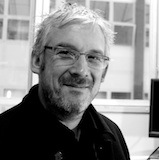 John Lalor is an Assistant Professor in the School of Policy & Practice in the Institute of Education, DCU. John is also a researcher in DCU's Further Education and Training Research Centre (FETRC). He teaches at undergraduate level in the areas of Values, Identity and Intercultural Learning, Citizenship Education, Curriculum Evaluation and Research, Curriculum Design and Implementation, Research Methods and Teaching Practice. At post-graduate level his work involves the teaching and supervision of Masters students on the MSc in Education and Training, Leadership strand and the Professional Masters in Education (Post-Primary). He currently co supervises a number of PhD students in the area of Further, Adult and Continuing Education. John acts as the Teaching and Learning convenor for the School of Policy & Practice and represents the school in this capacity on the IOE Faculty Teaching and Learning Committee. In the past, John was the Chair of the BSc in Education & Training programme. The Further, Adult and Continuing Education strand of this degree is the only Teaching Council recognised concurrent teaching degree in Ireland.
John Lalor is an Assistant Professor in the School of Policy & Practice in the Institute of Education, DCU. John is also a researcher in DCU's Further Education and Training Research Centre (FETRC). He teaches at undergraduate level in the areas of Values, Identity and Intercultural Learning, Citizenship Education, Curriculum Evaluation and Research, Curriculum Design and Implementation, Research Methods and Teaching Practice. At post-graduate level his work involves the teaching and supervision of Masters students on the MSc in Education and Training, Leadership strand and the Professional Masters in Education (Post-Primary). He currently co supervises a number of PhD students in the area of Further, Adult and Continuing Education. John acts as the Teaching and Learning convenor for the School of Policy & Practice and represents the school in this capacity on the IOE Faculty Teaching and Learning Committee. In the past, John was the Chair of the BSc in Education & Training programme. The Further, Adult and Continuing Education strand of this degree is the only Teaching Council recognised concurrent teaching degree in Ireland.
John is the DCU PI on the CIM project, an Erasmus+ research project aiming to promote creativity and innovation management in an innovative blended learning and validation programme at the interface between higher education (HE) and business https://cim-project.eu/. John is also a researcher on the En-Abilities project which developed tools aimed at encouraging autonomous language learning for adult students with Special Educational Needs (SEN) in Europe and in Ireland gave adults who have refugee status or who are living in Direct Provision some informal support in learning English to promote their social inclusion http://en-abilities.eu/.
John is the DCU academic representative on the regional steering group of College Connect, a Higher Education Authority (HEA) funded three-year PATH 3 (Programme for Access to Higher Education) project which aims to admit 400 students from specific target groups, who are under-represented in college https://collegeconnect.ie/.
Previous research activity focussed on two thematic areas through EU funded research projects: Access and Inclusion in Education in national and European contexts Includ-Ed and Curriculum Assessment in Vocational Education settings Credivoc. John conducted his PhD studies in the area of Education in Culturally Diverse settings and was a member of the DCU Migration and Interculturalism Initiative. He has organised a number of national and international conferences, workshops and seminars in the area of Intercultural and Inclusive Education in DCU. Other research work has focussed on Curriculum Development and Implementation, Curriculum Evaluation and Assessment in Vocational Training contexts, Social Disadvantage and Pluralism and Diversity. John has also conducted research for The Arts Council of Ireland and Dublin City Council Arts Office into Community Music practice in informal contexts. John has been involved in the design and provision of education courses for people with disabilities. John's background is in the Arts where he has acted at various times at consultancy, management, practitioner and research level.
Prof Gerry McNamara
Gerry McNamara is a Professor in the School of Policy & Practice in the Institute of Education DCU. From 1997-2007 he was Head of the School of Education Studies. He is Chair of the Doctorate in Education - a taught doctoral programme in the field of educational leadership and evaluation. Gerry is a specialist in educational evaluation and has planned and led many major evaluations at home and abroad, working for, among others, the Dept. of Education and Science, the National Centre for Guidance in Education, Leargas, the Equality Authority of Ireland, the European Commission, and the United Nations Development Programme. Gerry was a member of the Teaching Council of Ireland (2001/2002, 2004-2006), a co-founder of the Irish Evaluation Network, (2000), and was a member of the Council of the British Educational Leadership, Management and Administration Society, (BELMAS), from 2008-2012.
Prof Joe O'Hara
Joe O'Hara is Professor of Education in the DCU Institute of Educations, School of Policy & Practice and former Head of the School of Education Studies. He is a member of The Teaching Council of Ireland, on the steering committee of the Irish Evaluation Network and Irish representative on the Network of European Societies of Evaluation Working group (NESE). Joe is an adjunct faculty member of the Centre for Culturally Responsive Evaluation and Assessment at the University of Illinois at Urbana Champaign and Research Director at the Centre for Educational Evaluation and Inspection (EQI), DCU. He is also a member of the Board of Management of Glasnevin Educate Together National School.
Dr Francesca Lorenzi
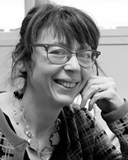 Dr. Francesca Lorenzi is a lecturer in the School of Policy & Practice in the Institute of Education DCU Her teaching is primarily in the areas of Intercultural Education, Ethics and Values Education and Assessment and Evaluation. She obtained a PhD in Education from the National University of Ireland, Maynooth with a thesis focusing on the role of dialogue in assessment and the democratisation of practices in education. Prior to joining the School of Education Studies she worked for over 15 years in Adult and Training environments in Ireland (CDVEC; CMOD –Training centre for the Irish Civil Service)and Italy. Formerly she was Co-Chair of the BA in Humanities offered by Oscail, the Distance Education Centre at Dublin City University. During this time she engaged in research and published on evaluation of distance education courses and adult education. She has presented her research on assessment at several national and international conferences. She is currently also a member of the inter-disciplinary project EELF (Ethics Education through literature and film) and of CREA (Centre for Culturally Responsive Evaluation) at DCU.
Dr. Francesca Lorenzi is a lecturer in the School of Policy & Practice in the Institute of Education DCU Her teaching is primarily in the areas of Intercultural Education, Ethics and Values Education and Assessment and Evaluation. She obtained a PhD in Education from the National University of Ireland, Maynooth with a thesis focusing on the role of dialogue in assessment and the democratisation of practices in education. Prior to joining the School of Education Studies she worked for over 15 years in Adult and Training environments in Ireland (CDVEC; CMOD –Training centre for the Irish Civil Service)and Italy. Formerly she was Co-Chair of the BA in Humanities offered by Oscail, the Distance Education Centre at Dublin City University. During this time she engaged in research and published on evaluation of distance education courses and adult education. She has presented her research on assessment at several national and international conferences. She is currently also a member of the inter-disciplinary project EELF (Ethics Education through literature and film) and of CREA (Centre for Culturally Responsive Evaluation) at DCU.
Ms Jane O'Kelly
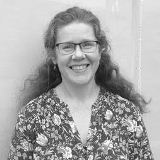 Jane O'Kelly is a lecturer in the School of Policy & Practice in the Institute of Education DCU She lectures in Creative Instructional Design, Research methodologies and approaches, Work Based Reflective Practice and the use of information and communication technologies (ICTs) in education. Her research interests include online learning communities, blended learning, further education and learner support using information and communication technologies. She is currently completing her doctorate on the use of online learning communities for peer support in education. She has worked for the National Centre for Guidance in Education as a project manager for EU guidance related projects and informing national policy and practice in guidance and counselling across all education sectors. She has strong ties to European Commission funded vocational education and training programmes through twenty years of administration, management, evaluation and report writing in the Euroform/Adapt, Lifelong Learning and Erasmus+ programmes. She has a deep interest in contributing to the development of the further education sector in Ireland especially in terms of pedagogy, sharing of good practice and the use of ICTs to support the learning of educators, trainers and learners.
Jane O'Kelly is a lecturer in the School of Policy & Practice in the Institute of Education DCU She lectures in Creative Instructional Design, Research methodologies and approaches, Work Based Reflective Practice and the use of information and communication technologies (ICTs) in education. Her research interests include online learning communities, blended learning, further education and learner support using information and communication technologies. She is currently completing her doctorate on the use of online learning communities for peer support in education. She has worked for the National Centre for Guidance in Education as a project manager for EU guidance related projects and informing national policy and practice in guidance and counselling across all education sectors. She has strong ties to European Commission funded vocational education and training programmes through twenty years of administration, management, evaluation and report writing in the Euroform/Adapt, Lifelong Learning and Erasmus+ programmes. She has a deep interest in contributing to the development of the further education sector in Ireland especially in terms of pedagogy, sharing of good practice and the use of ICTs to support the learning of educators, trainers and learners.
Dr Peter Tiernan
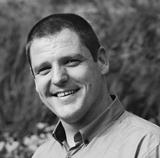 Dr Peter Tiernan is Chair of the BSc in Education and Training in the School of STEM Education, Innovation and Global Studies, Institute of Education,DCU. Peter lectures across undergraduate and postgraduate programmes in the areas of ICT, Enterprise Education, Instructional Design, and Classroom Practice. At postgraduate level, Peter supervises students on the MSc in Education and Training Management and the Professional Masters in Education on projects that engage with all levels of the education system, from primary to further education, and industry focused research. Peter’s research interests are currently focused on digital literacy and enterprise education. Peter is a member of the CEEN (www.ceen.ie) network which leads a number of projects designed to promote enterprise education at all levels of the education system. His research also includes working with industry partners to examine the effectiveness of technology interventions in the workplace and evaluating work-place learning programmes.
Dr Peter Tiernan is Chair of the BSc in Education and Training in the School of STEM Education, Innovation and Global Studies, Institute of Education,DCU. Peter lectures across undergraduate and postgraduate programmes in the areas of ICT, Enterprise Education, Instructional Design, and Classroom Practice. At postgraduate level, Peter supervises students on the MSc in Education and Training Management and the Professional Masters in Education on projects that engage with all levels of the education system, from primary to further education, and industry focused research. Peter’s research interests are currently focused on digital literacy and enterprise education. Peter is a member of the CEEN (www.ceen.ie) network which leads a number of projects designed to promote enterprise education at all levels of the education system. His research also includes working with industry partners to examine the effectiveness of technology interventions in the workplace and evaluating work-place learning programmes.
Dr Trudy Corrigan
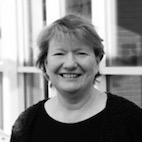 Dr Corrigan is Coordinator and Lecturer in the School of Policy & Practice in the Institute of Education DCU. Trudy has studied for a Professional Doctorate in the former School of Education Studies. Her research interests are in adult education and lifelong learning. This includes developing Intergenerational Learning as a high quality pedagogical practice in higher and further education.Trudy was awarded a Learning Innovation Unit award to research the benefits of the De Bono model as a useful mediation model in the workplace. In addition, Dr Corrigan was awarded the LIU Research award to promote and develop research for the successful DCU Intergenerational Learning Project which was founded by her and developed in association with colleagues in DCU. This has now developed into a successful programme which is integrated into the DCU community and the wider community. This programme explores the benefits of a teaching and learning space at third level where both older people can meet and learn with third level students. This is to explore the reciprocal benefits of learning between generations. Trudy is interested in the concept of a stimulated mind in aging. In addition, she is interested in the benefits of the provision of teaching and learning opportunities at third level as a significant contribution towards independent living in aging. Her research includes Intergenerational Learning as a pedagogy used in further and higher education. The development of communities of learning in higher and further education that is intercultural and cross generational. Personal and Professional development of learning in later life. Valuing the scholarship of eldership-embracing the knowledge and wisdom of older people in higher education. Encore career opportunities. Adult Education and Lifelong Learning. Mediation Skills in the workplace. Access, equity and inclusion at third Level. Innovative learning and the impact of educational opportunities in relation to human, social and cultural capital. Intergenerational Learning and learning opportunities for older and younger people at third level, click here for the Intergenerational Learning Project website. Mentoring and Peer Learning. Citizenship and Education. Action Research/Research Perspectives. Innovative Access Routes to third level in association with the HEA. Benefits of ICT for the Knowledge Economy.
Dr Corrigan is Coordinator and Lecturer in the School of Policy & Practice in the Institute of Education DCU. Trudy has studied for a Professional Doctorate in the former School of Education Studies. Her research interests are in adult education and lifelong learning. This includes developing Intergenerational Learning as a high quality pedagogical practice in higher and further education.Trudy was awarded a Learning Innovation Unit award to research the benefits of the De Bono model as a useful mediation model in the workplace. In addition, Dr Corrigan was awarded the LIU Research award to promote and develop research for the successful DCU Intergenerational Learning Project which was founded by her and developed in association with colleagues in DCU. This has now developed into a successful programme which is integrated into the DCU community and the wider community. This programme explores the benefits of a teaching and learning space at third level where both older people can meet and learn with third level students. This is to explore the reciprocal benefits of learning between generations. Trudy is interested in the concept of a stimulated mind in aging. In addition, she is interested in the benefits of the provision of teaching and learning opportunities at third level as a significant contribution towards independent living in aging. Her research includes Intergenerational Learning as a pedagogy used in further and higher education. The development of communities of learning in higher and further education that is intercultural and cross generational. Personal and Professional development of learning in later life. Valuing the scholarship of eldership-embracing the knowledge and wisdom of older people in higher education. Encore career opportunities. Adult Education and Lifelong Learning. Mediation Skills in the workplace. Access, equity and inclusion at third Level. Innovative learning and the impact of educational opportunities in relation to human, social and cultural capital. Intergenerational Learning and learning opportunities for older and younger people at third level, click here for the Intergenerational Learning Project website. Mentoring and Peer Learning. Citizenship and Education. Action Research/Research Perspectives. Innovative Access Routes to third level in association with the HEA. Benefits of ICT for the Knowledge Economy.
Dr Ger Scanlon
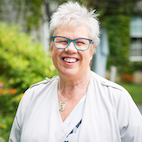 Dr. Geraldine Scanlon is an Assistant Professor in Psychology and Education in the School of Human Development and is the Faculty Ethics Advisor for the Institute of Education at DCU. Her areas of expertise have enabled her to collaborate professionally at both national and international levels. Her research interests have been concerned with strategies which supports the inclusion of Children with Special Educational Needs in mainstream education and the implications for teachers and schools in facilitating those needs in light of Inclusion. A key feature of her research has been “Transitions” for this group of pupils moving from Primary to Post Primary school, Further and Higher Education and for adults with disabilities moving from Education and Training to Employment. Her more recent work has focused increasingly on a Human Rights Agenda approach which assumes that all individuals are entitled to have access to education especially those from marginalised groups. The core element of her work is embedded in facilitating the voice of children and vulnerable populations through research and innovation. Central to this work is the notion of active citizenship and social inclusion for all groups of students. These principals are reflected in her most recent work which explored the notion of Supported Transition for young people with disabilities leaving special schools to enable them to have the same choice and access to FE/HE as their peers and an additional project which examined the impact of being homeless on children's ability to access and participate in education. Her expertise in Inclusive education and human rights led to her appointment as an international advisor to support UNICEF Bulgaria on developing an inclusive framework for Kindergartens as a result of their new educational legislation in 2015. The framework was rolled out nationally in 2018
Dr. Geraldine Scanlon is an Assistant Professor in Psychology and Education in the School of Human Development and is the Faculty Ethics Advisor for the Institute of Education at DCU. Her areas of expertise have enabled her to collaborate professionally at both national and international levels. Her research interests have been concerned with strategies which supports the inclusion of Children with Special Educational Needs in mainstream education and the implications for teachers and schools in facilitating those needs in light of Inclusion. A key feature of her research has been “Transitions” for this group of pupils moving from Primary to Post Primary school, Further and Higher Education and for adults with disabilities moving from Education and Training to Employment. Her more recent work has focused increasingly on a Human Rights Agenda approach which assumes that all individuals are entitled to have access to education especially those from marginalised groups. The core element of her work is embedded in facilitating the voice of children and vulnerable populations through research and innovation. Central to this work is the notion of active citizenship and social inclusion for all groups of students. These principals are reflected in her most recent work which explored the notion of Supported Transition for young people with disabilities leaving special schools to enable them to have the same choice and access to FE/HE as their peers and an additional project which examined the impact of being homeless on children's ability to access and participate in education. Her expertise in Inclusive education and human rights led to her appointment as an international advisor to support UNICEF Bulgaria on developing an inclusive framework for Kindergartens as a result of their new educational legislation in 2015. The framework was rolled out nationally in 2018
Dr Brendan Walsh
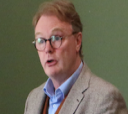 Brendan Walsh FRHistS . B.A., University College Dublin, 1989:H.Dip.Ed., University College Dublin, 1990:Diploma in Montessori Education, St. Nicholas College, 1992:Masters in Education,University College Dublin, 1995:Ph.D (University College Dublin) 2005:PhD (Cantab.) 2015. Dr Walsh is an Associate Professor and former Head of the School of Policy and Practice at the DCU Institute of Education and a Research Fellow at the Center for Evaluation, Quality and Inspection at Dublin City University. Dr. Walsh worked as a post-primary school teacher from 1989-2000 teaching English, History, Geography and Classical Studies. He lectures in the fields of History of Education and Education Polic
Brendan Walsh FRHistS . B.A., University College Dublin, 1989:H.Dip.Ed., University College Dublin, 1990:Diploma in Montessori Education, St. Nicholas College, 1992:Masters in Education,University College Dublin, 1995:Ph.D (University College Dublin) 2005:PhD (Cantab.) 2015. Dr Walsh is an Associate Professor and former Head of the School of Policy and Practice at the DCU Institute of Education and a Research Fellow at the Center for Evaluation, Quality and Inspection at Dublin City University. Dr. Walsh worked as a post-primary school teacher from 1989-2000 teaching English, History, Geography and Classical Studies. He lectures in the fields of History of Education and Education Polic
